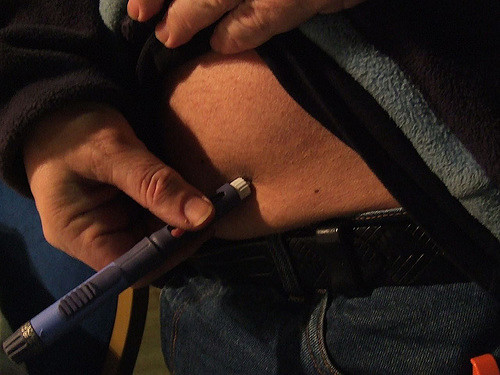
A group of scientists in Switzerland have made genetically engineered cells that could one day eliminate the need of injecting insulin. Instead patients would be implanted with the cells under the skin that would stay there for three years.
The cell-based diabetes treatment has been tested on diabetic mice, who displayed normal blood sugar levels for several weeks after being treated with the engineered insulin. Within two years, Martin Fussenegger, who led the research at the ETH university in Basel, hopes to start clinical trial. Indian scientist Prateek Saxena is also a part of the research.
If successful, it would work for type 1 diabetes and type 2 diabetes that need insulin injection.
"By 2040, every tenth human on the planet will suffer from some kind of diabetes, that's dramatic. We should be able to do a lot better than people measuring their glucose," Fussenegger said.
Fussenegger re-engineered human kidney cells, known as HEK cells, to perform the function of the pancreas. The cells were engineered to make them sensitive to glucose levels and to make sure they release insulin when glucose levels increase beyond a certain limit.
"It's hard to understand why ours should be better than something that evolved for millions of years," said Fussenegger. "It shows that as engineers, thinking rationally, we can also do a very good job."
In India, the number of diabetes patients is likely to increase to 101 million in India by 2030, the World Health Organisation (WHO) estimated.
Kerala, Tamil Nadu and Gujarat have the highest number of diabetes cases in the country. At least 8.2 percent of adult male population and 6.8 percent of adult women are diabetic in India. According to a study in the Indian Journal of Endocrinology and Metabolism, at least 97,700 children have type 1 diabetes. And globally, 642 million adults will be affected by diabetes by 2040.
The research even if it goes into clinical trial within two years will take at least a decade to be available in the market.

















